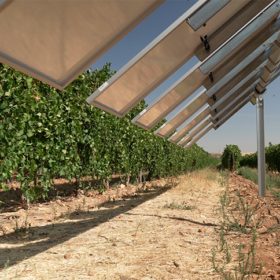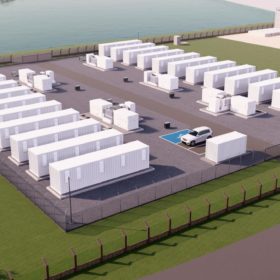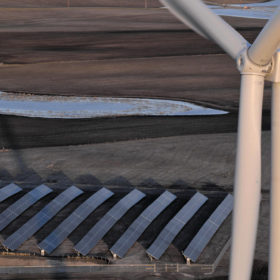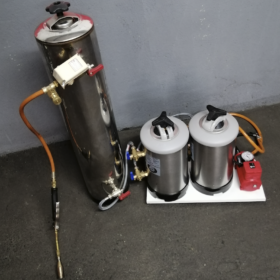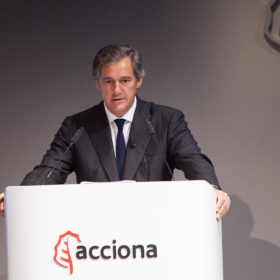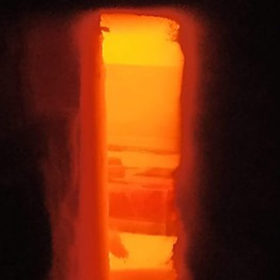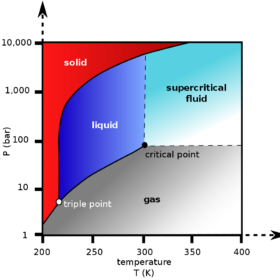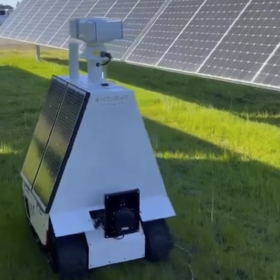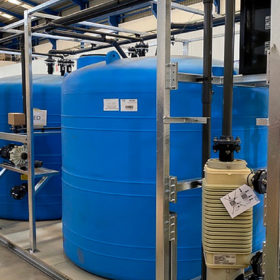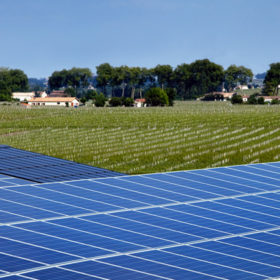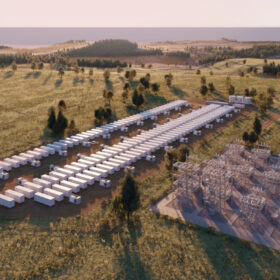Agrivoltaics for vineyards
Developers recently commissioned two different wine-related agrivoltaic projects in Europe.
German investor buys up Australian battery energy storage portfolio
German investment management company Aquila Capital has expanded its Antipodean asset base, inking a deal to buy a 220 MW/440 MWh portfolio of battery energy storage projects in South Australia from Spanish renewables developed Gransolar Group.
Weekend read: Teamwork makes the green work
Solar-wind hybrid plants are rapidly becoming mainstream, and in booming markets like India and the US these hybrids are increasingly preferred to singular projects despite the higher installation cost. There is no shortage to the benefits of hybridisation, from a smoother power output profile to the cost saving of grid connection. But getting the balance right for new projects and retrofits remains a challenge. Blake Matich reports on this growing trend.
Update: New tech to produce hydrogen from tap water
A Spanish scientist has developed a system that reportedly produces hydrogen on-site without expensive electrolysis. The prototype utilises a water tank that is initially filled with water, ferrosilicon, and sodium hydroxide.
Spanish giant plans $26 billion investment in Australian renewables following government change
Spanish energy and construction giant Acciona plans to massively expand its investment in Australian renewable projects over the next five years, following the new federal government’s pledge to upgrade national electricity transmission networks.
Thermophotovoltaic battery could store energy at $14/kWh
Developed by researchers in Spain, the battery uses renewable electricity to melt low-cost metals such as silicon or ferrosilicon alloys to produce and store latent heat, which is in turn used by a thermophovoltaic generator to produce power. According to its creators, the device may store electricity at a cost of €10 per kilowatt-hour (AU$14.6/kWh) for a 10MWh system.
Storing renewable electricity with supercritical CO2 heat pump
Researchers in Spain have designed a pumped thermal energy storage system that uses supercritical carbon dioxide as a heat pump and a heat engine. The proposed system is claimed to achieve an efficiency of 80.26% and an LCOS of €0.116/kWh (AU$0.18/KWh)
Fully autonomous robot for solar O&M
OnSight Technology has developed a tele-operated vehicle to clean solar arrays. It is equipped with a radiometric thermal imaging camera and an optical zoom camera backed by artificial intelligence. It has a range of 12 hours and a speed of 1.6 km per hour.
Hybridising PV, redox flow batteries and geothermal heat pumps
A Spanish consortium is equipping one of Madrid’s largest metro and bus stations with a hybrid system that combines PV, geothermal pumps, and vanadium redox flow batteries to provide cooling and heating.
Australian-led consortium acquires French solar company with 15GW under development
A consortium led by Australian financial group Macquarie Asset Management will acquire French solar developer Reden Solar. The $3.7 billion (€2.5 billion) transaction is expected to be finalised in the third quarter of this year.
